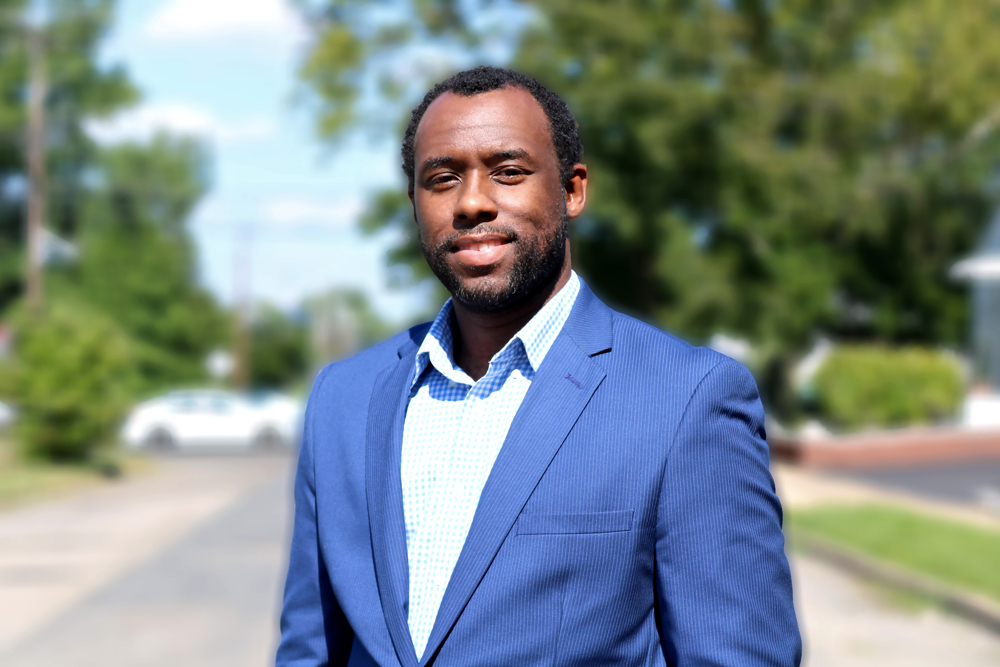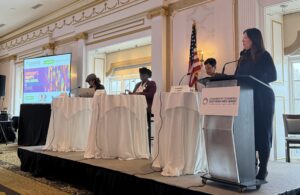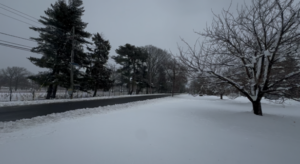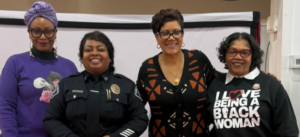WHYY: New Jersey NAACP’s Marcus Sibley Says Racism Behind Environmental Injustice

Feature picture of Marcus Sibley courtesy of Marcus Sibley.
BY CLYDE HUGHES | AC JosepH Media
MOUNT LAUREL — Marcus Sibley, chair of the New Jersey NAACP environmental and Climate committee, said Monday (Jan. 3) that white supremacy and racism are at the heart of environmental abuses in Black and Brown communities but the current Murphy administration is taking steps in the right direction to correct many of the issues.
Sibley, president of the Southern Burlington County branch of the NAACP, made the comments during an episode of Radio Times on public radio WHYY.
Blacks and other people of color have long complained that urban areas have always faced the brunt of plants, factories, brownfields and other contamination such as the lead pipe issues in Flint, Mich.
“So the question I always have to ask is, ‘Why aren’t other communities having these problems,'” Sibley told host Marty Moss-Coane. “Why is it the Newarks and the Camdens have an influx of multiple polluting facilities, multiple highways and byways so there could be so much traffic. Why don’t all these other communities have it? The answer, if you’re brave enough to say it, is usually white supremacy and racism.”
Generations of Environmental Abuse
Sibley, who works professionally as the New York metro director of conservation partnerships for the National Wildlife Federation, said generations of this type of economic and environmental injustices have made Black and Brown communities less healthy over time and that affects the future.
“When you grow up in these environments and you have all of these different determinants impacting your health, you don’t have a fair chance,” Sibley said. “You don’t have an opportunity, as they say, to pull yourself up by your bootstraps, because every day the air that you breathe, the water that you drink, the food that you eat is grown in contaminated soil is impacting your opportunities to grow and to flourish.”
PSA – Cornerstone Community Church in Millville: Visit today, Services Sunday at 10:30 a.m. EST. Click HERE for more information
Sibley said the current coronavirus pandemic has exposed even more the greater peril these communities face.
“It’s noise. It’s asthma. It’s cancer. It’s all kind of respiratory issues that have now contributed to COVID-19 deaths,” Sibley said. “It is a culmination of everything that is coming out and being emitted from these facilities. It’s coming from traffic pollution. It’s noise pollution. Unfortunately, these communities don’t have a voice or enough political power or cache in order to stop these projects.”
The Murphy Government
Sibley said he has been pleased with how the Murphy administration has responded so far with the NAACP’s concerns about environmental justice.
On September 18, 2020, Gov. Phil Murphy signed the New Jersey’s Environmental Justice Law which requires the New Jersey Department of Environmental Protection to evaluate the environmental and public health impacts of certain facilities on overburdened communities when reviewing certain permit applications.
The Murphy administration credited the work of New Jersey’s environmental justice advocates like Sibley to help New Jersey become the first state in the nation to require mandatory permit denials if an environmental justice analysis determines a new facility will have a disproportionately negative impact on overburdened communities.
The law defines an overburdened community as any census block group, as determined in accordance with the most recent United States Census, in which:
- At least 35% of the households qualify as low-income households (at or below twice the poverty threshold as determined by the United States Census Bureau);
- At least 40% of the residents identify as minority or as members of a State-recognized tribal community; or
- At least 40% of the households have limited English proficiency (without an adult that speaks English “very well,” according to the United States Census Bureau).
The Department of Environmental Protection Commissioner Shawn LaTourette joined Sibley on the radio program.
“We are honored to work with Commissioner LaTourette and the governor’s office,” Sibley said. “The reality is you can’t always get what you want, but you have to maintain great relationships and advocate for the things that you need. We’ve been able to have a great relationship with the governor’s office as well as Commissioner LaTourette and all the other DEP staff.
“They have been receptive to feedback. We’ve been in constant communication, pushing the line and trying to get us to a place where we understand that clean air is a right, just like any other right. It is a right to have clean air,” he added.
Sibley said no one thinks one of two policies will change generations negative environmental policies against Blacks, but the “baby steps” being taken will lead to progress.
No Quick Fix
“It’s an understanding that it’s not going to happen overnight, but you’ve got to have the courage and the foresight to say we’re going to make these steps in 2022 for something that may not payout until 2060 or 2050,” Sibley said.
“If you only look at how big the task is, you’ll never get anything done. So we have to take these baby steps. We think the ACT rule is a really good baby step. There are other things that are coming down the pipeline that are really good steps, It’s being committed to fighting these historic wrongs. We know things have been wrong. Things have been done incorrectly. Things have been done unfairly. Now we are trying to find equitable solutions to these longstanding problems. I think these small steps are really good and beneficial,” he continued.
Sibley said jobs for Blacks and other people of color from the new green industry, though, will only happen if people are intentional. He said politicians and activists should not be shy in saying if African American communities sustained the most harm, then they should lead in receiving the training and education needed to benefit from the change.
“If people are committed to being specific about the language [Black people will benefit],” Sibley said. “There have been many times where people have proposed things and but there hasn’t been any specificity, so people get exploited on top of being exploited. We continue to push the line about being very explicit about what communities need.”
Follow Us Today On:
Note from AC JosepH Media: If you like this story and others posted on Front Runner New Jersey.com, lend us a hand so we can keep producing articles like these for New Jersey and the world to see. Click on SUPPORT FRNJ and make a contribution that will do directly in making more stories like this available. Thank you for reading!






